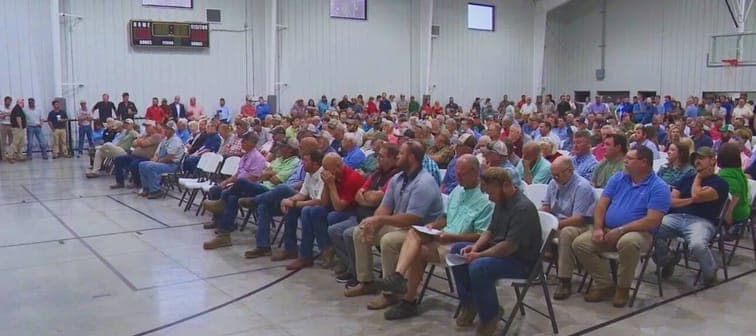One-Third of Arkansas Farms Face Closure Risk Amid Economic Crisis, Hill Convenes Council for Aid Talks

Congressman French Hill (R-Ark.) recently convened the Arkansas Farm Credit Council in Washington D.C., continuing discussions from a prior agricultural roundtable. The meeting focused on critical issues for Arkansas farmers and lenders, including the necessity of ad hoc payments and relief on payment limits, amidst a severe economic downturn threatening the state's agricultural sector. This engagement comes as warnings escalate that one in three Arkansas farms could cease operations without supplemental aid.
The broader agricultural landscape, as detailed in a February 2025 House Agriculture Committee hearing, reveals a deepening "economic crisis in farm country." Dr. John Newton, Executive Head of Terrain, testified that inflation-adjusted net cash farm income for corn and soybean farmers had plummeted by 45% since 2022, reaching its lowest point in a decade and a half. This severe decline is attributed to historically high input costs combined with sharply falling commodity prices, resulting in three consecutive years of tight or negative margins for many producers.
Arkansas producers are particularly vulnerable, with warnings from the Agricultural Council of Arkansas in September 2025 indicating that one in three farms in the state could cease operations without immediate supplemental aid. Farmers at a gathering in Brookland, Arkansas, reportedly stressed the critical need for "ad-hoc payments right now to make it through this year," as highlighted by KATV. Congressman Hill's engagement reflects this urgency, focusing on both ad hoc financial assistance and relief on payment limits, a response partly facilitated by the American Relief Act of 2025, which provided substantial emergency funds.
The discussions with the Arkansas Farm Credit Council, including lenders like AgHeritageFCS, underscore the financial strain on the sector and the challenges in securing credit. This reliance on temporary, unpredictable aid highlights the urgent need for a modernized and enhanced farm bill, as the current safety net's reference prices are largely outdated and do not reflect contemporary production costs. Congressman Hill expressed gratitude for the council's insights, stating in his tweet, > "Grateful for their insight and for the work they do every day to keep our state’s farm economy strong," stressing the collaborative effort needed to ensure the long-term viability of Arkansas agriculture and its vital rural communities.